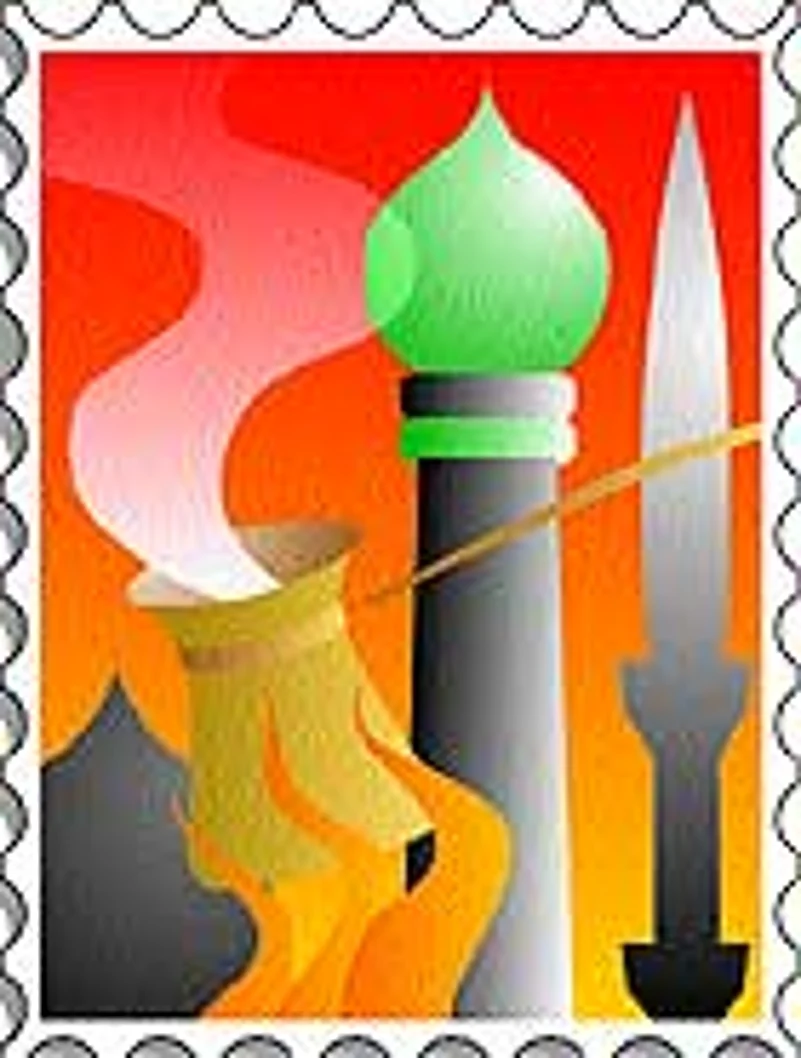That Bosphorescence

When I arrived in Istanbul on a Friday, expecting it to be a public holiday, and found no lull in its everyday activities, I realised how Turkey was not the usual Islamic country. Later, when I asked an educated and well-travelled Turkish man whether he felt inclined to visit a mosque on a Friday or even a Sunday, he said he visited mosques only occasionally, and that too on special days like Ramadan.
Yet, in no other city I have been to have I seen such splendid mosques from where the muezzin beckon the faithful to prayer five times a day. With no one in any particular hurry to visit the mosques, the azaan almost seems a plaintive cry that mingles with the sound of horns from old ships and the cry of seagulls on the Bosphorus.
On the streets these days, you can see more of the hijab and the long black robes, but that is the exception rather than the rule; the women on Istiklal Cadessi dress more fashionably than some even in Paris. Turkey is a secular country, and the educated are proud of the fact. When you ask some of the locals, if, in time, the country will turn fundamentalist-Islamic, they shake their heads, and remark that it’s just that under the present government headed by Recep Tayyip Erdogan, the more devout feel confident about being seen in their traditional attire. At one time, under Mustafa Kemal Ataturk, wearing of the hijab in government offices was even banned.
Style Statesman
The founder of modern Turkey, Ataturk, is to the country what Mohandas K. Gandhi is to India. He is responsible for what the country is today, and among many other things he pushed for was the emancipation of women and Latinising of the Turkish alphabet. At a time when Christians wanted church services to be resumed in Hagia Sophia (that began as a Byzantine Church and morphed into a mosque under the Ottoman rulers) and the Muslims wanted their Ayasophia to be declared a mosque, he simply declared it a museum, ending all argument.
Ataturk is a much revered figure in Turkey today, with every shop and office displaying his photograph. What is more, you can see huge black-and-white photographs of Ataturk on the walls of Yildiz Park in Ciragan Caddesi across from Ciragan Palace, and on the walls across from Dolmabahce Palace which was his final residence when he passed away at 57 years. However, unlike Gandhi, he is not depicted as a ‘half-naked fakir’ or a saintly figure. Rather, you see him as a stylish leader in Savile Row suits, as the army general, and there is even one in a swimsuit, with a Jacqueline Onassis look-alike wife, on a yacht.
The Young Turks
This being the year when Istanbul has been declared one of the three capitals of culture of Europe, there are more American and Australian tourists in the city, agog to enter the mosques, among many things. The Turkish citizens don’t mind that their mosques are also tourist attractions. But a certain decorum and dress code is expected in most of them. Fortunately for western tourists, a sarong-like cloth to cover legs which are wearing only shorts, and a scarf to cover one’s head are handed at the entrance. Even more novel are the plastic bags that are given to carry shoes into the mosque. No fee is charged for any of these services.
The young of Turkey, however, it seems are not so clued in to their cultural or religious heritage as was obvious from the conversation with my guide, a dashing 23-year-old college graduate. He said he had not even visited the Sultanahmet area until he became a guide. He steered me around the fashionable Istiklal which he confided, as an aside, was a good place to party and said he himself had never been up the Galata Tower or inside of a hamam, both situated at the end of this street.
My Name is Missing
I tried to meet Orhan Pamuk who lives in an apartment in Cihangir. But I was told you had to write to his agent in New York, so that though I was in Istanbul wanting to meet the country’s most famous writer, I had to get in touch with New York. When I did manage to get through to someone who knew his brother (these kind of things work in Turkey too), I was told he was back from Columbia (where he often teaches a class) but was busy working on a new book.
I spotted neither Orhan nor Kiran Desai and I had to make do with drinking the lovely lemonade that is served in the restaurant up his street near the Taksim Square.
Charms and the Man
India or Pakistan, they ask you as you are bargaining in the Grand and Spice Bazaars. When I say India, they say, ‘Ah, Hindoostan? I love you’. And they leave you so charmed that you end up with more Evil Eyes than you have friends.
























